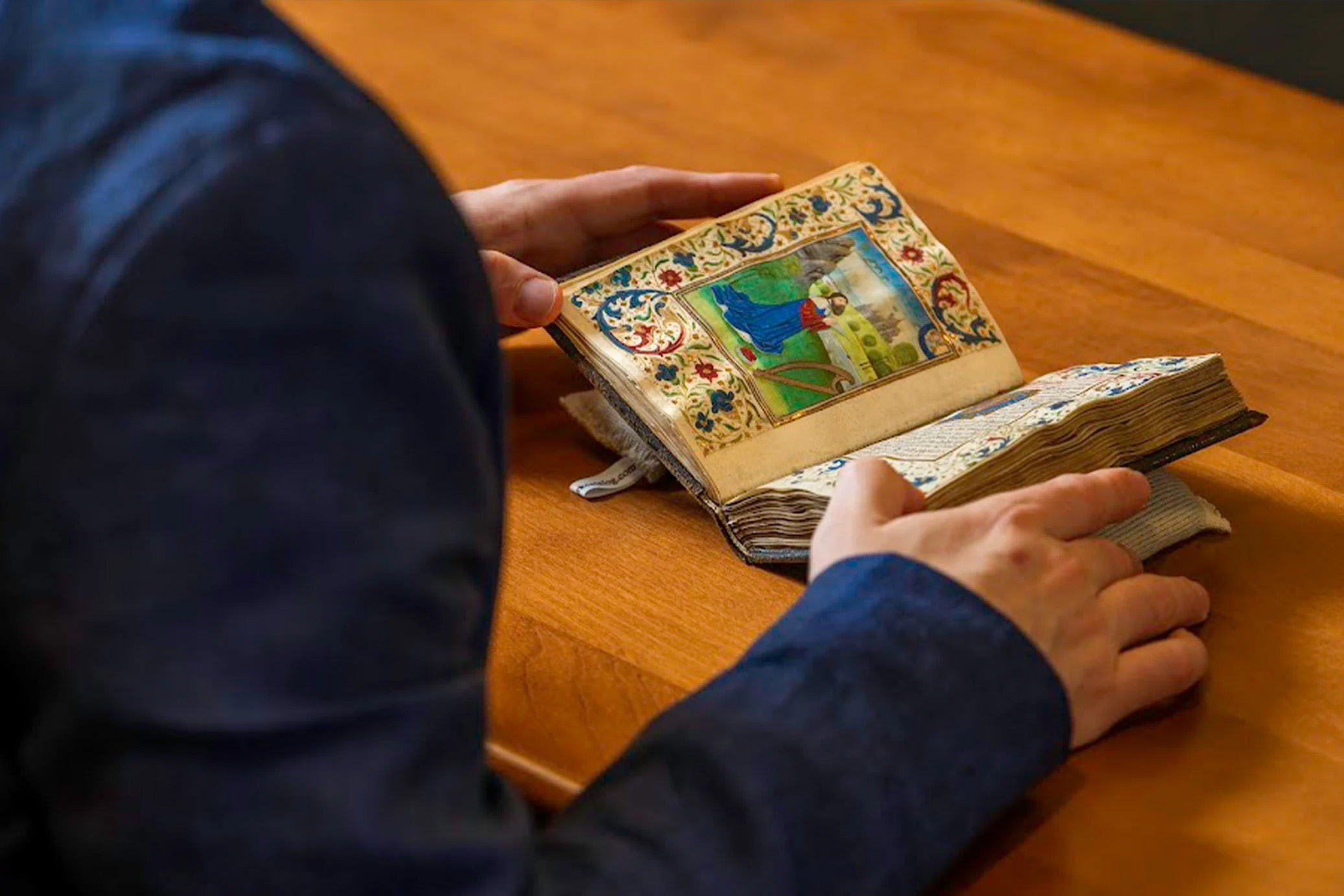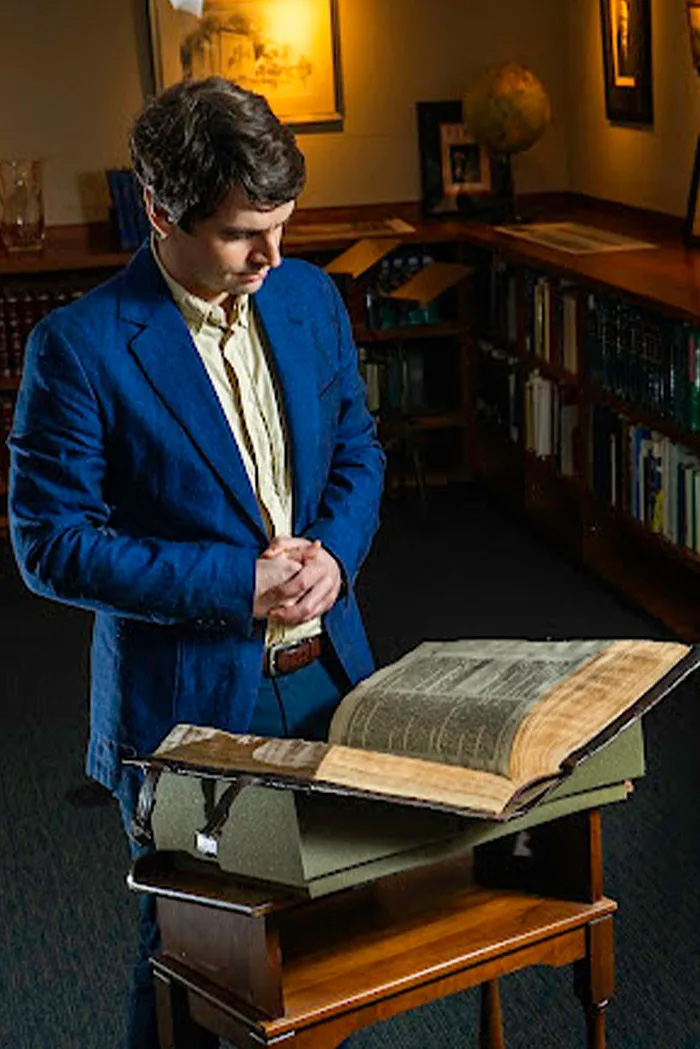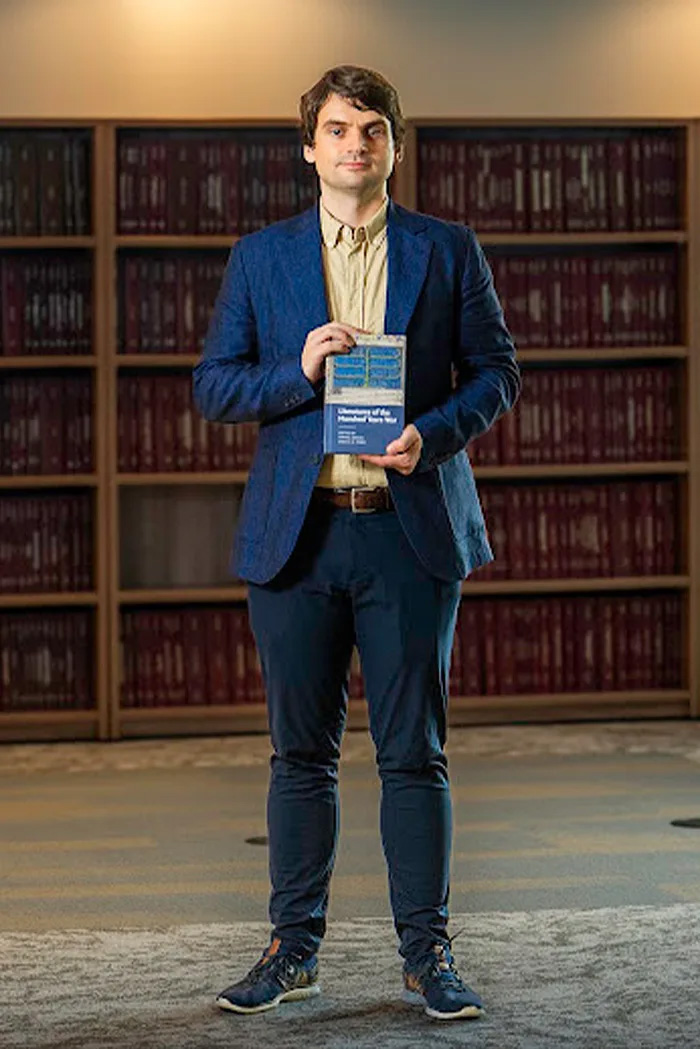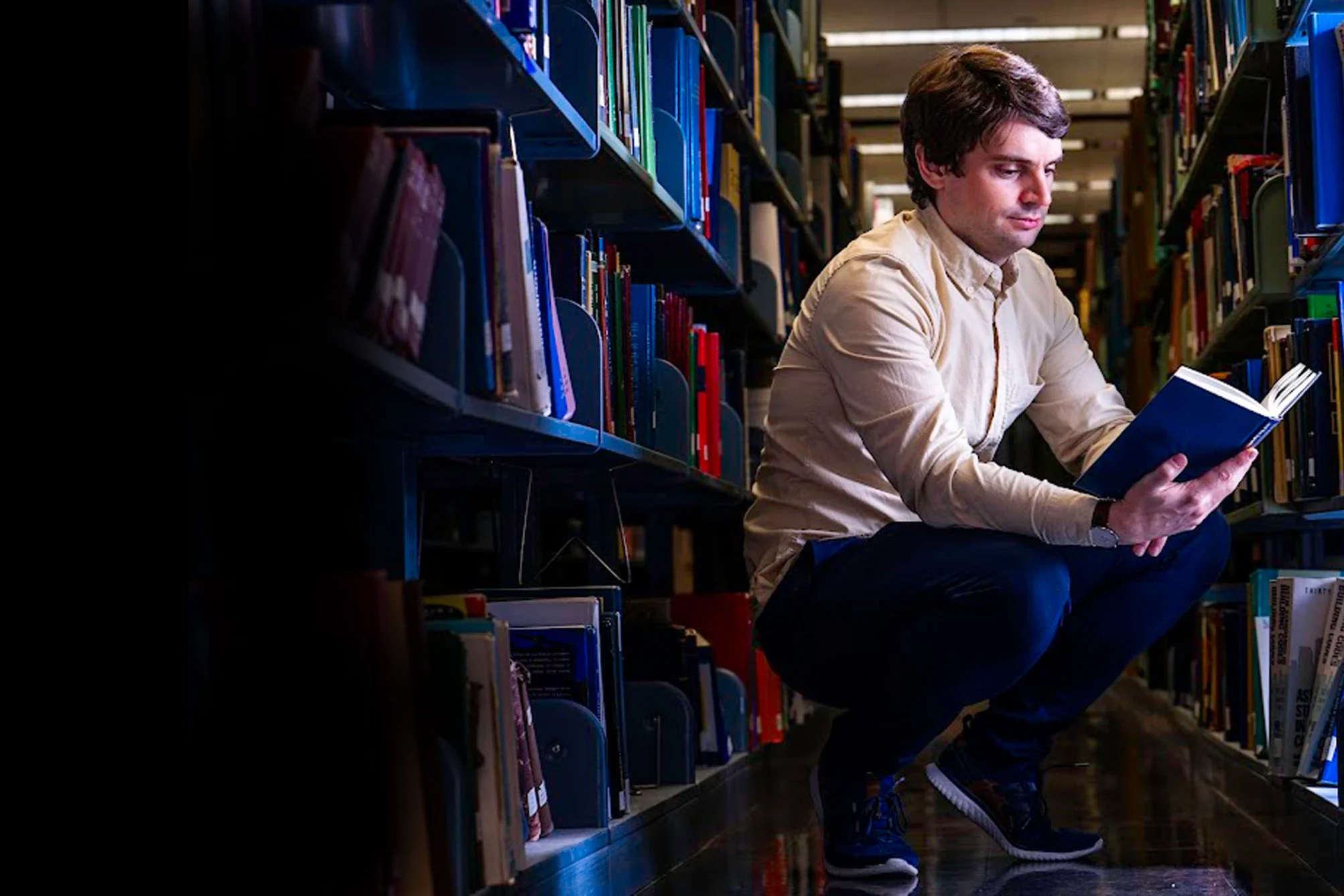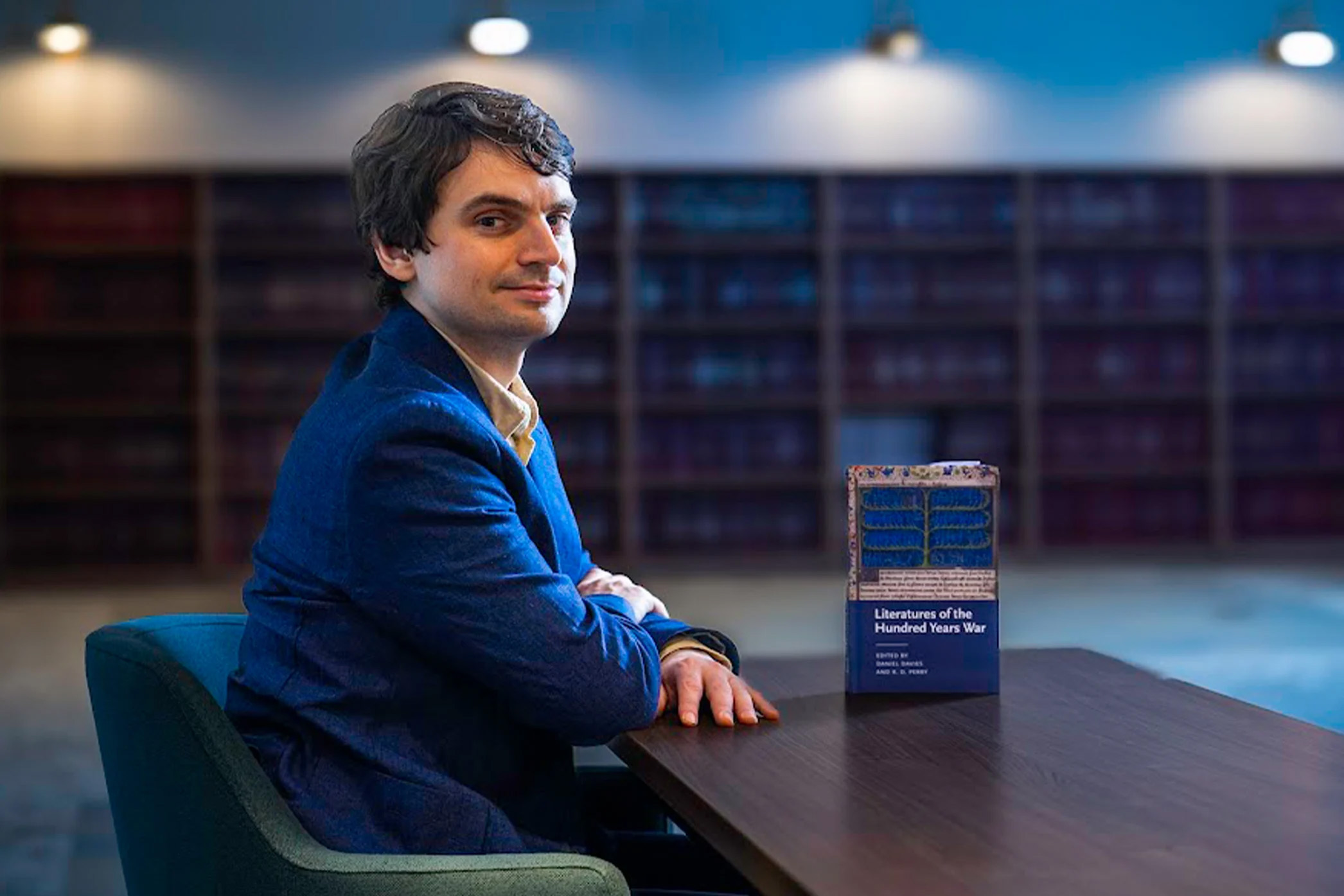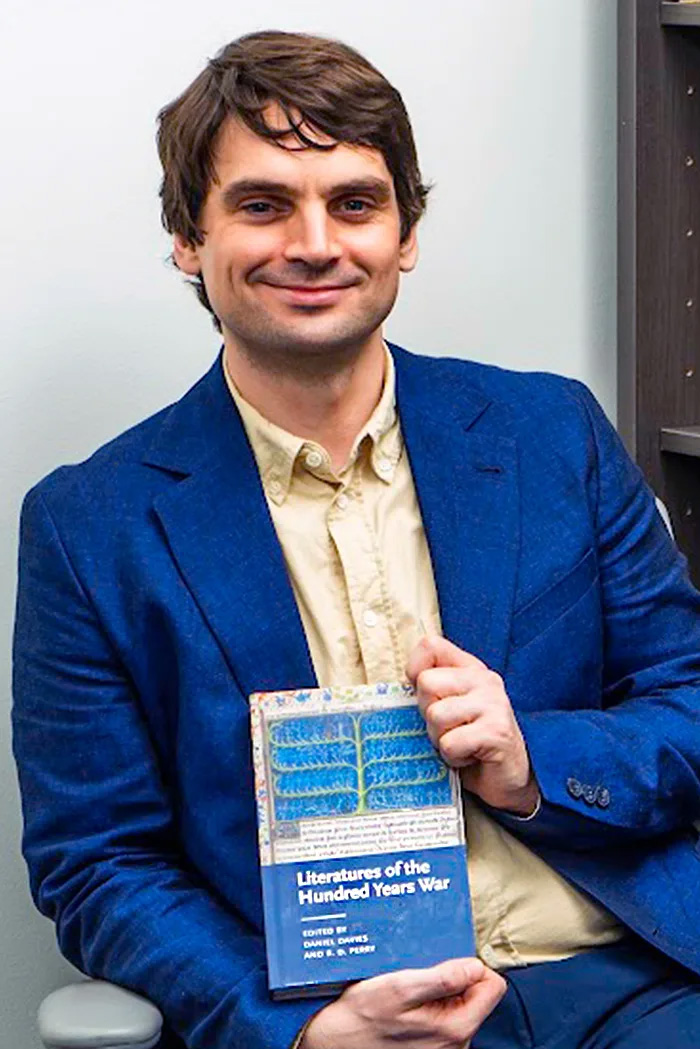
What can a war from the Middle Ages teach us about the military and political struggles of today? A lot, according to Daniel Davies, an assistant professor of English in the College of Liberal Arts and Social Sciences.
This question has shaped Davies’ academic career. He teaches undergraduate courses on contemporary war and media where he challenges students to critically examine the role of war in American society. His more advanced courses, reserved for graduate students, examine the long tradition of war writing from classical texts like Virgil's Aeneid to the work of Geoffrey Chaucer – a topic he researches extensively.
“I seek to take canonical figures like Geoffrey Chaucer, author of ‘The Canterbury Tales,’ who was a soldier, prisoner of war, diplomat, and lived through the fear of war, and show how his literary writing is fundamentally shaped by war,” said Davies.
“I also aim to bring more attention to little-known and little-studied aspects of medieval literature, such as manuals of war, arts of war and historical chronicles, to paint a richer picture of the way late-medieval literature was interconnected with war.”
Davies’ niche area of study is garnering him major national attention. This spring, he was awarded the prestigious Solmsen Fellowship at the Institute for Research in the Humanities to conduct research at the University of Wisconsin-Madison during the 2024-25 academic year.
The fellowship is awarded annually to scholars focusing on European history, literature, philosophy, politics, religion, art and culture before 1700. It provides a $60,000 stipend, office space and access to significant university resources, supporting Davies’ research endeavors.
"Professor Davies' selection as a Solmsen Fellow demonstrates our faculty’s global influence on humanities research," said Daniel P. O’Connor, dean of the College of Liberal Arts and Social Sciences. "His study of the past enriches our understanding of contemporary events and reflects the value of our college’s scholarship to society."
Beyond the Solmsen Fellowship
Davies is no stranger to receiving national accolades for his research: he also received a competitive research grant from the National Endowment for the Humanities this summer. However, he is clear about how work is extending beyond theoretical and academic contexts.
Having grown up in northwest England and studied abroad in Berlin, Germany, for a year as an undergraduate student, Davies’ experiences abroad influenced his clear-eyed view of war and his career.
“Every day, I would leave my apartment in Berlin and walk across the former site of the Berlin Wall. Berlin is still shaped by the legacy of World War II, and it made me rethink my place in the world and the role of war,” he recalls. “It was also in Berlin where I first took medieval literature seminars that engaged me.”
Years later, Davies is now working to complete his monograph, “Under Siege: Perpetual Warfare and Late-Medieval Literature,” which explores the enduring role of war in society. According to Davies, peace was the exception, not the rule, in the Middle Ages.
“Today, we tend to think of war as this exception to peace, even though there's much evidence to the contrary about how prevalent war is,” explained Davies.
“If we take a broader look at a longer context of warfare, we see that wars like World War I and World War II are the exception. Far more common are these ongoing territorial conflicts that resemble war in the Middle Ages. My book seeks to bring war to the foreground of how we think about late medieval literature today.”
In addition to his research, Davies prioritizes community engagement. He volunteers with PAIR Houston , a local nonprofit that serves the city’s refugee youth through educational programming and mentorship. Last year, he organized a series of events with British poet Patience Agbabi in collaboration with PAIR. The events included a creative writing workshop with PAIR high school students, a public reading and campus events with UH students and Mellon Research scholars.
“It was a reminder of how powerful the humanities can be. I'll never forget seeing how proud the high school students were when they read their poems at the end of the workshop. Poetry enabled them to engage with language–whether English or otherwise–in a way that gave them ownership of it,” said Davies.
Next year, Davies will also produce an interdisciplinary collaborative project called Space City Medievalism alongside UH English MFA candidate Marshall Woodward, galvanizing students to create new poetry inspired by medieval themes.
In the meantime, he is gearing up for his year at the University of Wisconsin-Madison, already anticipating the positive impact the Solmsen Fellowship will have on his teaching. "I look forward to being part of a cohort of interdisciplinary scholars in the humanities," he said. "My colleagues will push my research in unexpected directions, bringing new perspectives that I haven't considered. This experience will help me refine my graduate and undergraduate medieval courses, enhancing the learning experience for my students."
